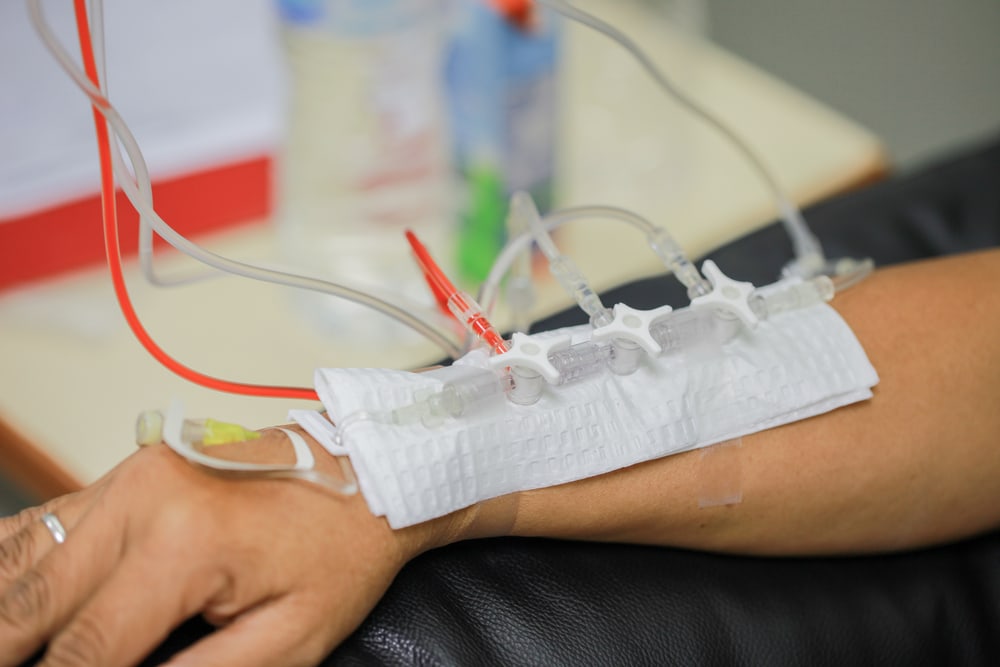Contents:
- Medical Video: How Is Cervical Cancer Diagnosed and Treated?
- Body condition of people with stage 1 cervical cancer
- What should be done when you are diagnosed with stage 1 cervical cancer?
- Do treatment
- Live a healthy and positive life
- Can cervical cancer be prevented?
Medical Video: How Is Cervical Cancer Diagnosed and Treated?
The journey of cervical cancer begins when there are cells in the cervix which are not normal, and continue to develop uncontrollably. These abnormal cells can develop rapidly, resulting in tumors in the cervix. Malignant tumors develop into cervical cancer. Then what should be done after you have been diagnosed with stage 1 cervical cancer or early?
Body condition of people with stage 1 cervical cancer
At this stage, cancer cells have invaded the cervix, but do not grow outside the uterus. Cancer cells have not spread to lymph nodes that are nearby or spread to farther places. Stage 1 is further divided into several groups, namely:
IA Stadium: This is the initial form of stage 1. Small amounts of cancer cells have attacked the cervix and this can only be seen under a microscope. Stage 1A is further divided into:
- Stage IA1: Cancer cells have attacked the cervical tissue with a depth of <3 mm and have a width of <7 mm
- Stage IA2: Cancer cells already exist in cervical tissue with a depth between 3-5 mm and width <7 mm
IB Stadium: Cancer cells can be seen without the aid of a microscope. The size of cancer cells is greater than that of stage 1A, but still spreads only in cervical tissue. Stage 1B is divided into:
- Stage IB1: Cancer can be seen and has a size of ≤4 cm
- Stadium IB2: The cancer cell size is greater than 4 cm
What should be done when you are diagnosed with stage 1 cervical cancer?
Do treatment
Treatment of cervical cancer can be done in several ways, namely:
1. Operation
This action will remove the affected part of the cancer. Surgery can also be performed if the cancer has not spread or is still in its early stages. The following is a selection of surgical methods that can be done to treat your early stage cervical cancer, namely:
- Radical trachelectomy - the cervix, surrounding tissue and the upper part of the vagina is removed, but the uterus remains in place so that you can still have children. That's why this surgery is usually a priority for women who have early stage cervical cancer and still want to have children.
- Hysterectomy - the cervix and uterus are removed, depending on the stage of the cancer, may be needed to remove the ovaries and fallopian tubes. You can't have another child if you have a hysterectomy.
- Pelvic exenteration - a major operation in which the cervix, vagina, uterus, urine, ovaries, fallopian tubes and rectum are removed. Like a hysterectomy, you can no longer have children after undergoing this surgery.
2. Radiotherapy
In the stage of stage 1 cervical cancer, you can be treated with radiotherapy or combined with surgery. Then, if the cancer is at an advanced stage, doctors can recommend radiotherapy with chemotherapy to reduce bleeding and pain in patients.
In this procedure, your body is exposed to radiation. The radiation source can come from external, with a machine that emits radiation to your body, or internally. With the internal method, an implant will be inserted into your body to give radiation. There are several cases where these 2 methods are combined. The radiotherapy series usually lasts 5 to 8 weeks.
Live a healthy and positive life
After being diagnosed with level 1 cervical cancer, your doctor will advise you to take several drugs to slow cancer growth. You are also advised to undergo a healthier diet and lifestyle. Some of the things you can do include avoiding cigarettes, alcoholic beverages, eating healthy foods without preservatives, and doing sports.
Put yourself around people, the environment, and a positive atmosphere. You can join the cancer community, meet with the people survivor cancer to see and inspire yourself to be able and able to fight cancer.
You also have to prepare yourself with lots of reading and getting information about cervical cancer from a doctor or a trusted health web. This is to bridge and prepare yourself about the side effects of cancer treatment such as hair loss, loss of appetite, and decreased sexual desire.
Can cervical cancer be prevented?
It is difficult to know and recognize the initial symptoms of cervical cancer, because usually at a very early stage, this disease does not cause any symptoms. The growth of cancer cells in this early phase can only be detected by doing a Pap smear.
But unfortunately, most of the cervical cancer patients just came to treatment after experiencing advanced stage cervical cancer. Of all the new cases, 70% of the cases found were women with advanced cervical cancer, which meant that it was increasingly difficult to cure.
Therefore, you should do a Pap smear on a regular basis, because it can be seen and detected if abnormal cervical cell activity occurs. So, cervical cancer can be prevented.
Another important prevention method is HPV vaccination. Infection caused by the HPV virus is one of the main causes of cervical cancer. This virus is often spread through sexual intercourse, but can also be transmitted through skin to skin contact, so, everyone is at risk of contracting this disease.












